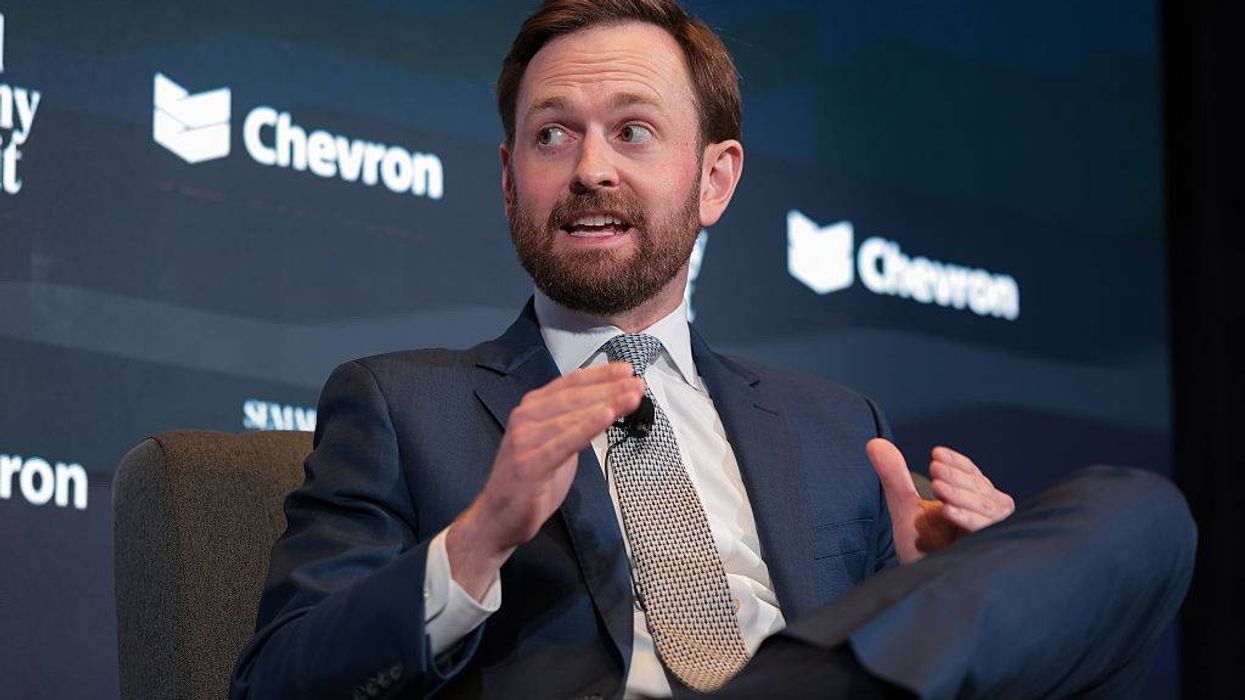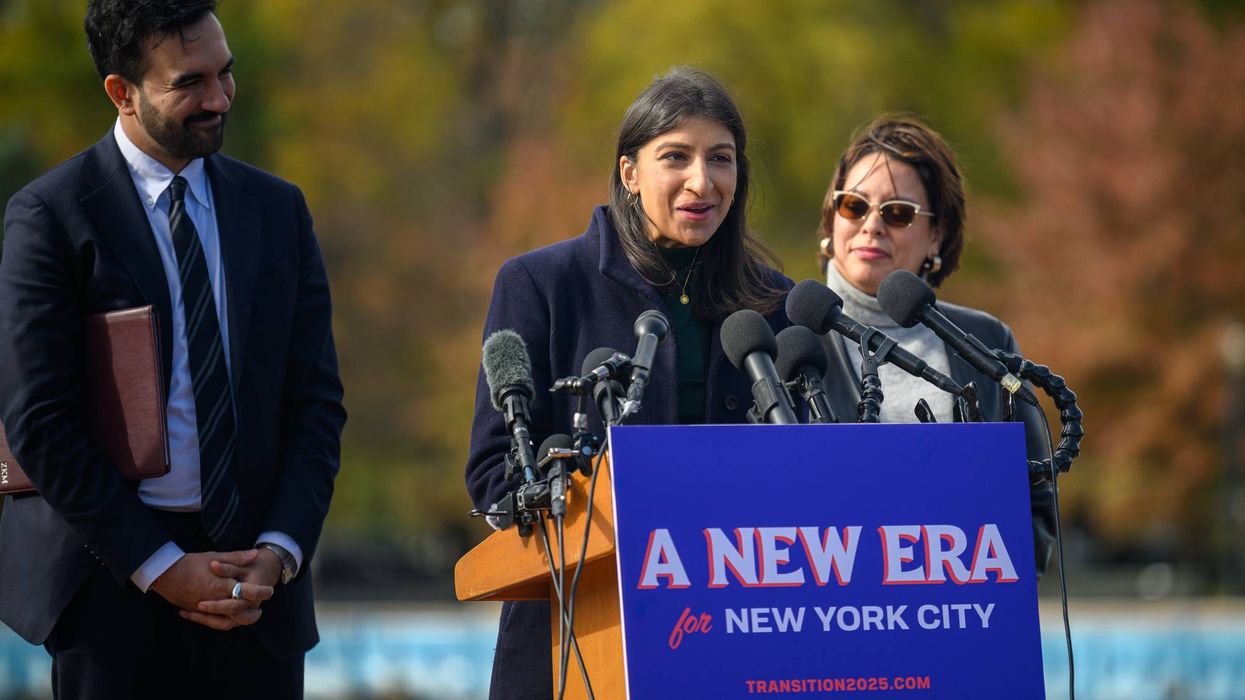July, 16 2009, 11:43am EDT
Ethanol Industry Can Stop Using Unnecessary Antibiotics
New Report Finds Nearly Half of Ethanol Plants Already Use Alternatives
MINNEAPOLIS, Minn.
The ethanol industry should voluntarily stop the unnecessary
use of antibiotics in the production process, particularly because viable alternatives are readily available, concludes a new report by the Institute for Agriculture and Trade Policy (IATP).
More than 70 percent of all U.S. antibiotics are used as feed additives for
healthy beef cattle, pigs and poultry to promote growth and to help manage
the stresses on animals posed by confinement housing. Strong evidence implicates overuse of antibiotics in livestock with rising antibiotic-resistant bacterial
infections in humans. The Food and Drug Administration (FDA) testified before
Congress earlier this month that the non-therapeutic use of antibiotics should
be phased out in agriculture.
"The epidemic of antibiotic resistance threatens every one of us," said IATP's
David Wallinga, M.D. "The best way to keep our existing antibiotics effective is
to stop unnecessary antibiotics wherever they are used--in hospitals, in animals and in ethanol production."
For decades, ethanol producers have added antibiotics to the ethanol fermentation process to control bacterial outbreaks. There are no reporting requirements for antibiotic use in ethanol production, so no reliable numbers are
available on how widespread the practice is. In 2008, the FDA found residues
from four types of antibiotics in dried distillers grains--the nutrient-rich residue
sold as livestock feed that is a co-product of ethanol production. The agency
has yet to make its findings public or take enforcement action against any
ethanol facilities.
IATP's report Fueling Resistance? Antibiotics in Ethanol Production estimates
that of the 170 ethanol production facilities in the U.S., nearly 45 percent already are avoiding antibiotic use through readily available alternatives. Dozens
more facilities are running trials of one of these alternatives, based on extensive conversations with ethanol plant producers and vendors of antimicrobial
alternatives. Some ethanol producers promote their dried distillers grains as
antibiotic-free.
"The bad news is that many ethanol facilities are currently using antibiotics.
The good news is that they don't have to," said IATP's Jim Kleinschmit.
According to the report's author, IATP's Julia Olmstead, "There are several effective, economical
antibiotic-free options on the market that are widely used that industry people we talked with
are very pleased about. The ethanol industry can stop the unnecessary use of antibiotics today."
The report calls for the ethanol industry to enact an immediate, voluntary ban on antibiotic use;
for the FDA to make its DDGS testing public and enforce existing regulations on antibiotic residues; and for further action by the FDA to restrict all unnecessary uses of antibiotics in agriculture.
The full report can be found at: www.iatp.org.
The Institute for Agriculture and Trade Policy works locally and globally at the intersection of policy and practice to ensure fair and sustainable food, farm and trade systems.
LATEST NEWS
Israeli Police Release Settler Filmed Running ATV Over Praying Palestinian in West Bank
A group of Israeli military veterans called his punishment "just a slap on the wrist" and "state-backed impunity for state-backed terror."
Dec 26, 2025
Israeli police have released a soldier from custody after he was filmed running his vehicle over a Palestinian man who was praying outside the city of Ramallah in the occupied West Bank.
A silent video of the incident, which both Israeli and Palestinian outlets reported on Thursday, shows an Israeli settler with a rifle slung over his back driving his all-terrain vehicle (ATV) toward a 23-year-old Palestinian man as he knelt in prayer on the roadside.
After barrelling over the man, the settler shouted something in his direction and backed up, then gestured for him to move.
The settler then turned his ATV around, got off, and shouted something at a Palestinian taxi driver. The injured Palestinian man then stood up, approaching the cab. The settler again shooed him off before hopping back on the ATV and speeding away.
Majdi Abu Mokho, the father of the Palestinian man, said his son now has pain in both legs after he was struck.
Mokho told Agence France-Presse: “The assailant is a known settler. He set up an outpost near the village, and with other settlers he comes to graze his livestock, blocks the road, and provokes the residents."
He also said the settler blinded him with pepper spray after hitting his son, though this is not shown in the video.
The Israel Defense Forces (IDF) identified the driver as an Israeli reserve soldier with one of its regional defense units. These battalions have dramatically expanded in recent years with backing from Israel's right-wing government, which contains many officials at the center of the settler movement.
Breaking the Silence, a group of Israeli military veterans critical of the occupation of Palestine, has referred to the regional defense units—which have been responsible for many other attacks on Palestinian civilians in the West Bank—as "no more than settler militias in uniform."
The IDF said the soldier's weapon has been confiscated and that he's been suspended due to the "severity of the incident," which the IDF said it was investigating. The IDF has not released the soldier's name.
An initial probe found that the same settler had opened fire in the village of Deir Jarir, north of Ramallah, earlier that same day, in an incident that resulted in a young Palestinian man being injured by gunfire.
During that altercation, which was also caught on film, a group of masked settlers was seen hurling rocks at the village's entrance. According to Palestinian sources who spoke with the Israeli newspaper Haaretz, the targets of the attack were villagers who were grazing their cattle near their homes.
In another video, a masked man—who the IDF identified as the same reservist responsible for the ATV attack—is seen firing his weapon in the direction of the camera. The IDF said that by opening fire inside the village while in civilian clothes, the soldier had committed a “serious breach of his authority.”
According to the Times of Israel, Israeli police released the settler reservist from custody on Friday. He has been placed under house arrest for five days and is banned from approaching Deir Jarir, where the incident occurred, or from contacting anyone else connected with the case.
The violent incident is the latest in a year that has seen a record number of attacks by Israeli settlers and soldiers against Palestinian villagers.
According to official figures, Israeli forces and illegal settlers have killed at least 1,130 Palestinians in the occupied West Bank, injured nearly 11,000, and detained around 21,000, since October 2023, when Israel launched its two-year genocide in Gaza following Hamas' attack.
On the same day as the ATV attack, Israeli police announced that they had arrested five Israeli settlers over their alleged involvement in an ambush against a Palestinian home, which resulted in “moderate injuries to the face and head” of an eight-month-old Palestinian girl, according to the Palestinian news agency WAFA.
While the IDF says it is investigating the ATV attack along with local police, attacks by Israeli settlers are often treated with leniency.
In January 2025, the Israeli watchdog group Yesh Din reported that across more than 1,700 reports of religious or politically motivated hate crimes committed by Israelis against Palestinians in the West Bank over the past two decades, nearly 94% of them were closed without any indictment being filed, and only 3% resulted in a conviction.
Although there has been a documented rise in killings by Israeli settlers since October 2023, not a single one of those cases has resulted in an indictment, and only about a quarter have resulted in investigations by Israeli authorities.
Critics found the punishment of the reservist to be similarly lackluster and the latest example of settlers' immunity from justice.
"Israeli reserve soldier intentionally runs over Palestinian praying on the side of the road," said Rabbi David Mivasair, an activist with the Canadian group Independent Jewish Voices. "His punishment: his weapon was taken away, and he was suspended from the reserves... nothing more."
Breaking the Silence called the punishment "just a slap on the wrist" and "state-backed impunity for state-backed terror."
Others noted that nearly 8,000 Palestinians are currently being held in Israeli prisons indefinitely without trial, including in Israel's "administrative detention" system, which allows them to be confined based on secret evidence that they and their lawyers cannot see.
Israel has justified it as a measure to prevent terrorism. However, in January, the government banned Israeli settlers from being held under those same administrative detention orders, with Defense Minister Israel Katz saying the goal was “to convey a clear message of strengthening and encouraging the settlements."
Ihab Hassan, a Palestinian human rights activist, said of the ATV attack: "Had the victim been Israeli and the attacker Palestinian, the sentence would be life in prison. That is why it is called apartheid."
Following the attack, the Council on American-Islamic Relations (CAIR) reiterated its calls for the US Congress to stop sending military aid to the Israeli government.
"This shocking and dehumanizing act is yet another example of the unchecked violence and abuse Palestinians face daily under Israel’s illegal occupation," the group said. "Brazenly running over a man while he prays is enabled by a system that grants near-total impunity to illegal settlers. The Trump administration must end its silence and take concrete steps to hold the Israeli government accountable for these ongoing human rights abuses.”
Keep ReadingShow Less
Trump’s Lax Approach to Antitrust Helps Spur Banner Year for Corporate Mergers
"Trump’s new antitrust enforcers have demonstrated a willingness to facilitate dealmaking through an uptick in early terminations and settlements," said the American Economic Liberties Project.
Dec 26, 2025
Global corporate mergers surged to near-record highs in 2025, driven in part by US President Donald Trump's lax approach to antitrust enforcement.
The Financial Times reported on Friday that global dealmaking in 2025 topped $4 trillion, including 68 mergers worth $10 billion or more, highlighted by Netflix's $72 billion bid to buy Warner Bros. Discovery and a proposed $85 billion mega-merger between railway giants Union Pacific and Norfolk Southern.
The US alone accounted for $2.3 trillion worth of mergers and acquisitions, which the Financial Times said highlighted the Trump administration's role in green-lighting corporate consolidation.
"Top dealmakers said that the Trump administration’s push to loosen regulation had encouraged companies to explore tie-ups that they might otherwise have been hesitant to pursue," the Financial Times explained.
Andrew Nussbaum, co-chair of the executive committee at law firm Wachtell, Lipton, Rosen & Katz, told the Financial Times that corporate leaders "see a willingness of the regulators to engage in constructive dialogue" under the second Trump administration, which has given them "a willingness to take on regulatory risk for transactions that are strategic."
The American Economic Liberties Project has also taken note of the Trump administration's role in shepherding through big mergers, and created a Trump Merger Boom tracker earlier this year to document the massive wave of corporate consolidation.
In its analysis of the administration's lax approach to antitrust enforcement, the American Economic Liberties Project said that "Trump’s new antitrust enforcers have demonstrated a willingness to facilitate dealmaking through an uptick in early terminations and settlements."
"Despite pro-enforcement rhetoric early on from Trump’s heads of the FTC and DOJ Antitrust Division," the American Economic Liberties Project added, "it’s becoming increasingly clear that agency leadership is having trouble making their decisions in a vacuum—with a quiet tide of deals granted to companies that have been friendly to the White House."
Keep ReadingShow Less
Lina Khan ‘Scouring New York City Laws’ to Help Zohran Mamdani Drive Down Prices
Khan and members of her team are reportedly "dusting off a little-used 1960s price-gouging statute" in an effort to bolster the mayor-elect's affordability push in New York City.
Dec 26, 2025
Former Federal Trade Commission chair and antitrust trailblazer Lina Khan is reportedly poring over New York City's laws to help Democratic Mayor-elect Zohran Mamdani fulfill the central promise of his campaign: making the metropolis more affordable.
According to the New York Times, Khan—in her capacity as co-chair of the mayor-elect's transition team—"has spent weeks scouring New York City’s laws to find dormant or underused mayoral authority that could allow Mr. Mamdani to take action in a hurry."
Potential actions "include specific attempts to drive down apartment rental fees and utility costs and compel businesses to be more transparent about pricing," as well as "dusting off a little-used 1960s price-gouging statute and policing new protections for food delivery workers," the Times reported, citing three unnamed people familiar with internal discussions.
As head of the FTC under former President Joe Biden, Khan took groundbreaking legal action against major corporations such as Amazon and, in the words of one antitrust advocacy group, "reinvigorated enforcement of the Robinson-Patman Act, a long-dormant law designed to prevent price discrimination by big corporations, through two separate cases against PepsiCo and Southern Glazer’s—major victories for smaller and independent businesses."
Khan, according to the Times, hopes to spur similar action in New York City. Members of her team, which includes former federal regulators, have "studied a 1969 consumer protection law meant to prohibit 'unconscionable' business tactics, to potentially target hospitals and sports stadiums where consumers typically have little choice but to pay high prices for products that are cheaper elsewhere."
Additionally, the newspaper reported, "they have looked at whether food delivery companies, which wield significant power in the city, are complying with laws that protect their drivers, and whether landlords are complying with a newly enacted law barring many real estate brokers from collecting thousands of dollars in fees."
Douglas Farrar, a spokesman for Khan, told the Times that the former FTC chair and her team have "worked closely" with the Mamdani transition "to provide key research support on ideas for hitting the ground running."
Keep ReadingShow Less
Most Popular


